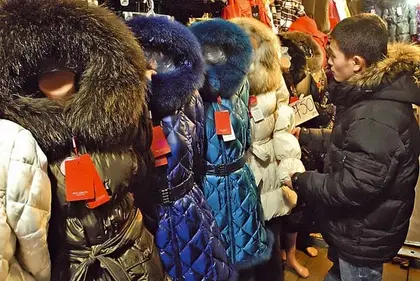HANOI, VIETNAM – Only half the size of Ukraine, Vietnam has twice as many people. To accommodate them, Vietnamese live in tiny flats, eat on sidewalks and whizz down roads on motorbikes in hectic swarms.
Some, however, need more space to break through the nation’s high rate of poverty. So they go abroad. Ukraine, along with other countries of the former Soviet Union, is one of the more popular destinations after the United States and Australia for migration.
- Examine the most contemporary Ukraine news that came out today.
- Examine the most contemporary Ukraine news that came out today.
JOIN US ON TELEGRAM
Follow our coverage of the war on the @Kyivpost_official.
Ukraine’s embassy in Vietnam says the size of this Asian community in Ukraine can be up to 50,000 people, while only a quarter of them are on official record. Ukraine also serves as a popular destination for refugees to cross into the European Union and make new lives in one of the 27 member nations.
This economic exodus is an improvement over decades ago, when people fled Vietnam mainly for political reasons and as a consequence of the Vietnam War. Now, however, they leave mainly for economic reasons.
“Most of those who leave nowadays are unqualified, but very hard-working and unpretentious youth,” said Ukraine’s ambassador to Vietnam, Ivan Dovhanych. “For some countries, oil and gas are key natural resources. But for Vietnam, it’s labor.”
Like many blue-collar workers from developing countries, the Vietnamese minority picks up work at the retail markets in the city’s outskirts. Troyeshchyna clothes market in Kyiv is reminiscent of a global village dressed in leather from Turkey and skirts from China. Vendors come from all over the world. Usually speaking little English or Russian, they use body language with customers or rely on help from Ukrainians working with them.

Putin Says Again He‘s Ready for Compromise - On His Terms, Of Course
Selling winter coats, Nhat Phong, came from Hanoi, the capital of Vietnam, three years ago. After a year of studying Russian, he decided to stay with his relatives who run a few stalls at the market.
“Good students take up all good jobs in Vietnam,” Phong said. “I was a bad student, so I could not compete with them. But even if I did, I would not make as much as I make here. My father. who has been teaching mathematics in high school for 20 years, earns a few times less in Vietnam than I do here.”
If Phong stayed in Hanoi, he would have probably joined an army of street vendors who clog the streets, selling everything from bamboo ladders to spirits with snakes. He would be scrambling to make $100 a month – six times less than what he makes in Kyiv.
Talking about food, it is something that Phong, as well as millions of his compatriots, would not trade even if living miles and miles away.
Binh Luong Quoc is the man who brought the taste of Vietnam to Ukraine by setting up a production of ready-made noodles in Kharkiv. One of the most successful and famous Vietnamese businessmen in Ukraine, he identifies the generation of executives and political leaders who came to the Soviet Union for studies before their career took off.
On Ukraine’s embassy records, there are some 8,000 high-profile Vietnamese leaders who speak Russian and still come to the Ukrainian restaurant Bud’mo in Hanoi for annual reunions.
Binh, however, is one of those who decided to stay in Ukraine after graduating from the Kharkiv University, married a Ukrainian and introduced fast noodles into the Ukrainian cuisine.
“There is a saying in Vietnam that birds fly to where the land is good,” Binh said. “I started my company in difficult times back in the 1990s. Today we expanded our production line to 130 types of food, which we export to 29 countries.”
A cup of noodles is a popular lunch at Troyeshchyna market in Kyiv among both the Vietnamese and Ukrainian vendors. “When I eat my food, it’s like a present. I miss my mother on these moments,” Phong said.
He does not know when and if he will go back to Vietnam at all. Asked about his visa status, he said he got married to an older woman to stay in Ukraine. “She’s 35 and I’ve never seen her. I don’t even want to meet her,” Phong said. “If I need a divorce, the community will arrange for it.”
According to Phong, marriage, education and adoptions are the most common ways to stay in Ukraine legitimately.
However, many Vietnamese in Ukraine would like to go home, Dovhanych said. “Unlike some other countries, the Vietnamese are more tied to their birthplace and have strong family ties. The percentage of expatriates is not very high, up to four million of the 86 million people. Take Moldovan diaspora, for example. It accounts for some 600,000 people out of 3.5 million in the nation. So, compared to Moldovans, the Vietnamese are homebodies.”
Yuliya Popova can be reached at popova@kyivpost.com
You can also highlight the text and press Ctrl + Enter







